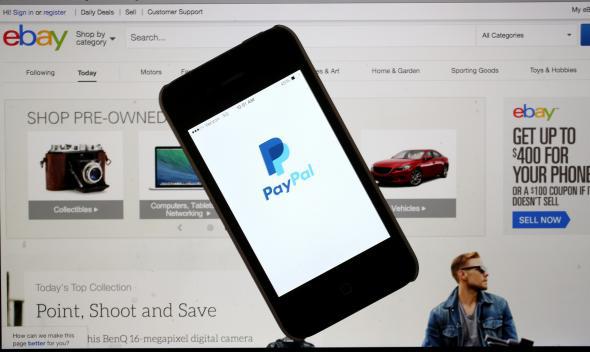Back in September, eBay finally caved to pressure from activist investor Carl Icahn and said it would spin off PayPal, its payments unit, to create two separate publicly traded companies. The split is planned for later this year, though eBay still hasn’t said exactly when. But in an amended filing on Thursday, eBay did give more details on its spinoff plans—and it seems like the breakup won’t change all that much.
As part of a deal reached between the soon-to-be-separated companies, eBay will continue routing roughly 80 percent of its gross merchandise sales through PayPal for the next five years. For each percentage point of sales above that amount, PayPal will pay eBay the annualized equivalent of $13 million. If eBay falls short of that target, it will compensate PayPal at the same rate for the first 5 percentage points of decline, and at an annualized rate of $50 million for each percentage point beyond that.
What’s more, a noncompete in the agreement prohibits eBay from pursuing its own payments technology, and PayPal from setting up its own e-commerce marketplace. John Donahoe, the current CEO of eBay who will step down to become chairman of PayPal, told the Wall Street Journal that the arrangement will allow both eBay and PayPal to pursue deals with new firms without getting the other’s approval. “PayPal is free to pursue any merchant, to pursue an Amazon, an Alibaba,” he told the Journal. “And eBay is free to bring other payment alternatives onto eBay.”
EBay’s decision to spin off PayPal came somewhat abruptly for a company that had long insisted its two branches were better off together. In late 2013, Donahoe said on an earnings call that eBay and PayPal’s union made “sense for many reasons”—“eBay accelerates PayPal’s success,” “eBay data makes PayPal smarter,” and “eBay funds PayPal’s growth.” But investors like Icahn felt quite the opposite—that eBay had become too slow to adapt and was strangling PayPal’s potential.
With the spinoff announcement, Icahn and his supporters got their way. Based on the operating agreement, though, it might be a while before online shoppers notice much of a difference.
